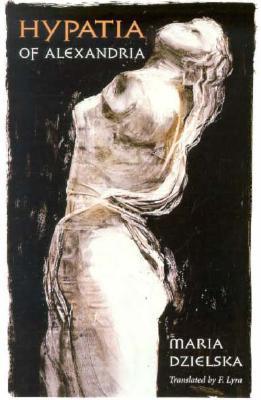For those who have never heard of Hypatia the back of this book gives you a quick summary of the woman:
Hypatia – brilliant mathematician, eloquent Neoplatonist, and a woman renowned for her beauty – was brutally murdered by a mob of Christians in Alexandria in 415. She has been a legend ever since.
This book is thin (106 pages, an additional forty to fifty provide sources, notes, and an index yet, despite its size, it manages to pull together a summary of Hypatia’s life from the texts of the time by people lsuch as Socrates Scholasticus and Synesius.
Essentially, it’s an interpretation of these historical texts that reconstructs who Hypatia was, how she lived, and why she was brutally murdered.
The book begins by examining the enduring legend of Hypatia by looking at the literary references in which she is portrayed (19th Century novels, and poetry) and continues to examine her by looking at the people who lived around here. Moving on, Dzielska looks at Hypatia herself from trying to determine the year of her birth to describing the terrible death to which she succumbed and, looks at who – ultimately – was responsible.* After looking at Hypatia, the author resolves the woman’s history and offers a conclusion to her book.
It was certainly an interesting book in both the uncommon subject matter and the way that the life within was completely reconstructed from writings of the day as none of Hypatia’s work is believed to exist anymore. It does not cover life in Alexandria or describe the Great Library but, as the title suggests, this is not about Alexandria – there will, no doubt, be books on that topic.
It’s worth reading if a) you have an interest in philosophy or mathematics; or b) you are a feminist looking for a new heroine. (She was, afterall, the only major female of scientific note prior to Marie Curie.)
* She was stripped naked, dragged through the streets to a church, where many proceeded to strip the flesh from her bones using broken pottery. Her remains were then tossed on a fire.

One Reply to “Maria Dzielska: Hypatia Of Alexandria”